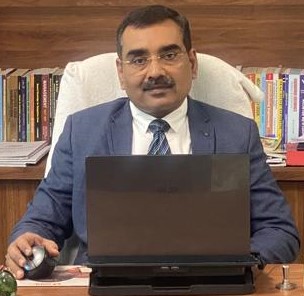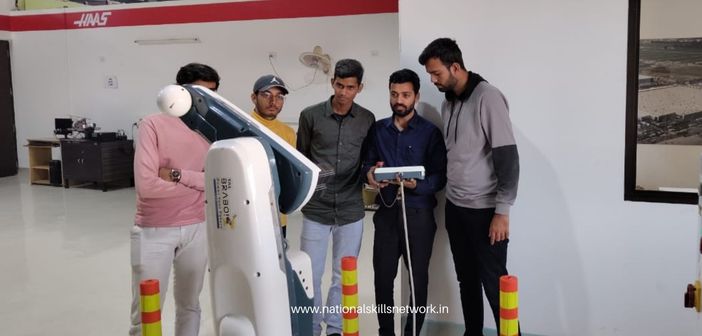“Each program at ITM Vocational University consists of 40 percent theory and 60 percent practical. All of the practicals are skill-based and adapted to the particular course. In their final year, it is mandatory for students to complete internships in the industry for a set duration,” said Dr. Anil M. Bisen, Vice Chancellor, ITM Vocational University, while sharing insights on what makes courses at ITM Vocational University different from others.

To learn more about the vocational university, the challenges of setting up a vocational university, credit-based internships, courses and programs offered at ITM Vocational University and how the university is preparing youth for the global economy through work-integrated learning, we conversed with Dr. Anil M. Bisen, Vice Chancellor, ITM Vocational University.
Below are a few excerpts from our conversation. You can watch the full video interview on our YouTube channel.
About ITM Vocational University
ITM Vocational University was established in 2014 as a private university in Vadodara, Gujarat. This is the first university in Gujarat that has the tag vocational. This university is part of the ITM group of institutions in Mumbai. ITM group of institutions have campuses in Chennai, Bangalore, Noida, Nagpur, and Raipur.
While referring to the courses offered at ITM Vocational University, Dr. Anil Bisen said, “We initially began with vocational programs such as a bachelor’s in vocation, a diploma in vocation, and a master’s in a vocation program. We added emerging industry courses to our programs. Now, all the courses we have are completely industry-oriented and skill-oriented. We have a lot of connections from the industry, as Vadodara is one of the big industry hubs in India.”
Credit-based internships as part of the curriculum
“The internship is a six-month semester. Every program requires students to complete a 6-month internship, which is integrated into the curriculum. Students earn credit through internships. There are two mentors who guide the students as part of the internship program. One is from the university, while the other is from the industry. Both the mentors assess the students to identify whether or not he/she has received that specific training, and then gets credited accordingly,” said Dr. Anil Bisen.
Through these internships, ITM Vocational University is trying to integrate work-integrated education into the curriculum, through which students will become competent and better prepared to work in the industry.

Challenges in setting up a vocational university
- Training the faculty: The faculty is the first challenge. Because of receiving a traditional education, a professor’s mindset is firmly rooted in tradition. It is difficult to change the thinking of faculty as there was never an option to learn through practice. There was a conflict when the idea of 60 percent practical and 40 percent theoretical was introduced.
- Curriculum development: The second challenge is the board of studies, where the curriculum needs to be framed. At least two industry representatives on the board of study are included. Because the students now in UG and PG lack skills, there is a need to change the curriculum, as skills play an important role for students. The faculty changes the curriculum based on the members of the board of studies’ advice. Through this, 40 percent theory and 60 percent practical in our curriculum is obtained.
Also read: Skill University – Everything you wanted to know about! https://nationalskillsnetwork.in/skill-university-everything-you-wanted-to-know-about/
Postgraduate programs at ITM Vocational University
“We have MBA and MSc programs. In the MSc in Industrial Chemistry program, we have industry-connect with Lupin, one of the pharmaceuticals. With the help of our industry partner, we made a few modifications to our curriculum. We do not conduct any pen-and-paper examinations for the students. This is a unique way of approaching the curriculum since we began this in 2022.”
I approached the industry experts and asked what the requirements were for an MBA graduate. Then they shared the list of skills they need for the industry, and we incorporated those demands into the curriculum. After which we test the students based on the skills they learned, and they get credits based on their grades,” he added.













